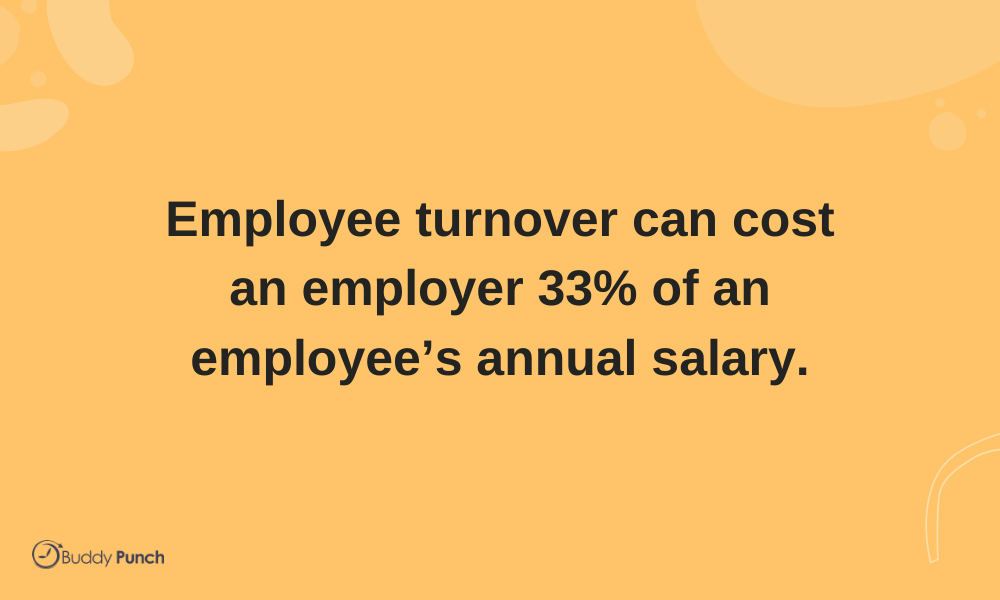14 Ways to Improve Your Management Skills

If you get promoted to a management position, you know you’re already an asset to your company. Assessments have proven you’re a useful contributor at your job, and you must have shown some innate people management skills, which are necessary to promote teamwork.
However, as an inexperienced or first-time manager, you may feel like you’ve been thrown in at the deep end. Perhaps you haven’t had much training, or you’re not sure your communication skills are up to par for a leadership role.
While we’ve all been told interpersonal skills are important, management roles often come as a reward to people who perform well at their jobs but get little training in being an effective manager itself. There’s a need for management training such as how to cultivate their leadership style, improve the mental health of their team members, and encourage the production of their employees’ best work.
According to Gallup, companies fail to choose the candidate with the right talents for the job 82% of the time—yet a bad manager can cost entrepreneurs thousands of dollars a year!
We’ve rounded up some actionable tips to improve those all-important leadership skills.
Note: Considering that most managers are judged by their ability to get team members to meet certain performance metrics, it’s worth investing in employee accountability software that gets employees to focus on tasks throughout the workday. Buddy Punch is a tool we built to do just that, holding employees accountable for their work, making scheduling a breeze, and even streamlining the payroll process. Click here to learn more.
1. Get to Know Your Team
Regardless of whether you’re a new manager or you’ve been in that position for a while, it’s important to get to know your team.
They’re all individual contributors with different strengths, competencies, and motivations. An effective leader with emotional intelligence will have the know-how to utilize their individual quirks and characteristics to increase employee engagement, foster a better work environment, and build trust through active listening.
One coworker may not be the most fun to be around, but they’re the most high-performing worker you have, while another’s thoroughness leaves something to be desired, but they’re great at customer engagement.
If you’re aware of their strengths and weaknesses, you’ll be able to assign tasks that play to those strengths to get better results for your team.
Employee engagement is a two-way street and leaders who know their staff well have a better chance at creating a work culture that supports the business’ vision and goals in the long run. If you are taking over from another manager, it’s always a good idea to talk to them one-on-one before you start. Ask what sort of managerial skills or technical skills proved useful to them. It will provide you with helpful information on both the team and your predecessor’s project management style.
Team building activities or informal get-togethers can be a great way to connect too, and as most of your day-to-day interactions with your team are of a strictly professional nature, it’s nice to converse in a more amicable way once in a while.
2. Establish Trust by Maintaining an Open-Door Policy
Once you’ve done the groundwork to get to know your team and established a relationship with them, the next step is to create an environment where they can bring their ideas to the table, have their feedback heard, as well as receive valuable constructive criticism from their teammates.
Great leaders create an open-door policy by asking team questions, paying attention, giving credit where it’s due, engaging with staff regularly, and accepting and acting on feedback swiftly. This is where soft skills like communication and conflict resolution come into leadership development. These are important skills that can nevertheless go unaddressed in the promotion process, whereas hard skills (the specific skills needed to complete jobs on a technical level) are more commonly tackled in a general manner during every employee’s onboarding process.
Even though soft skills are essential management skills, there’s a chance you’ll be expected to simply know them without being trained on them. That means you’ll need a degree of adaptability, strategic thinking, and self-awareness to strengthen your skills, preserve your well-being, and set you and your team up for success.
Clear and direct communication increases collaboration, motivation, and enhances effective problem-solving skills. Let’s take an example of a foreign language school, in which the employees (the teachers) interact with the customers (the students and their parents) daily.
Teachers solve problems, but also discover new approaches, teaching techniques, and types of management skills.
If the principal maintains an open-door policy and his teachers are comfortable sharing their insights, he will be able to implement their innovations throughout the school and improve his business. If there are any problems with the students or conflicts with the teachers, his effective communication will also allow him to get wind of them early.
It’s important to catch problems before they fester and get out of hand. It’s equally important to be consistent in showing attention to your employees when they come to you with questions or feedback, and to follow up on their queries—don’t leave them hanging.
After all, you’re working towards a goal together, so being on the same page is crucial.
3. Set Clear Goals and Share the Big Picture
When you step into a managerial role, it is imperative to clearly communicate your goals to the team. Goals create a structured environment and clear objectives to work towards.
Establishing why something needs to be done instead of just how and when helps foster creativity and initiative.
Keep the SMART technique in mind when you’re communicating organizational goals to your team or stakeholders. Keep the goals:
- Specific: such as “We want to become the highest-selling team in the company.”
- Measurable: “We will sign on thirty new customers.”
- Achievable: “We will do so by making x more calls a day. This means the time we spend on each call must be reduced by y number of minutes.”
- Relevant: “Our product is needed because of the following reasons…”
- Timebound: “We will do so by January.”
That way there is no confusion about what the team is aiming to collaboratively achieve, why they’re doing it, and when it needs to be accomplished. You can use the same approach when creating professional development goals with individual members of your team.
It’s easier to allocate time and resources to a goal if it’s clear and targeted, and your team is more likely to succeed too. Keep the goals in one place, preferably online, in a way that is accessible to your team so they can use it as a reference whenever they want.
Knowing that your work directly affects the company and its objectives keeps you more engaged with your work and the organization.
4. Schedule Regular Meetings
Regularly checking in with your team makes them more productive, helps to maintain relationships, and provides oversight.
When managers check in with them regularly, team members perceive constructive feedback as more meaningful, they are more motivated and engaged in their work
Booking regular meetings with your team also helps you get to know your team’s strengths and weaknesses.
There are some key points you can implement to make regular meetings efficient and productive.
- Setting a strict time limit is step number one. Having a set structure for your meetings helps to keep it streamlined.
- Keep the conversation moving and don’t steer off-topic.
- As with the goal setting, making objectives for the meeting clear to everyone involved prior will help to keep the meeting running efficiently.
If you make your meetings result-oriented, it keeps people engaged with the outcomes, actions, and deadlines on a regular basis.
A survey of 182 senior managers by the Harvard Business Review showed that 65% of them found that meetings keep them from completing their own work, so make sure they are productive.
5. Take Action
Regular meetings keep your team engaged and productive, but taking a proactive approach as a manager is just as important.
Focus your energy on keeping a high-level view of your team’s objectives and progress so that you can be proactive in your approach if you spot that things are not going according to plan.
If your employees know you have a proactive approach to dealing with situations, their trust in the organization and your ability to deal with their questions and requests will be higher.
It’s also important to lead by example. Do you want your employees to be on time? Work on your time management skills and make sure you’re on time too. Do you want people to communicate openly and work efficiently? Show them the way.
Clearly articulating your guiding principles and values to your staff will help them focus on what’s important, and waste less time on what’s not. You can build a good reputation as a leader if you’re decisive while being empathetic to differing viewpoints at the same time.
Wisely knowing when to take action or when to choose to bide your time is what will set you apart from others.
6. Strengthen Decision-Making and Avoid Micromanagement
Micromanagement is looking at the way someone functions in their job under a microscope. You may think it’s helpful, but it’s not.
It might be difficult to see someone make mistakes and refrain from butting in and changing the course of action, but however difficult, it’s crucial you allow them autonomy.
Once your team grows, you won’t have the capacity to keep such close eyes on your team anyway. Micromanagement damages your employee’s trust, makes you lose track of the bigger picture, and often increases the employee turnover rate.
Being a micromanager is often a sign of some deeper trust issues with your team. If you feel that you cannot rely on your team, you should address those issues as soon as possible.
Part of developing your decision-making skills is learning trust that someone else can do the job as well as you would. If you allow your staff to make their own decisions and show your faith in them, it will make them feel more confident in their job and therefore more engaged.
7. Admit Mistakes (And Offer Solutions)
We learn this when we’re young; never pass the blame onto someone else. Yet as adults we often still point the finger at others when things don’t go according to plan. Humility is a skill set all of its own.
As a manager, you’re bound to some mistakes along the way. It’s important you acknowledge those. Vulnerability equals strength. Learn from what you did wrong and use that knowledge to teach others how to avoid the same mistakes. You don’t have to apologize for every little mistake you make, and neither does your staff. Empathy is a handy guidance tool to use whenever you’re not sure whether you should admit a mistake and apologize. You don’t have to apologize for every little mistake you make, and neither does your staff. Empathy is a handy guidance tool to use whenever you’re not sure whether you should admit a mistake and apologize.
If you put yourself in your employee’s shoes and you think you’d appreciate an apology for a mistake that was made, then you probably should as a manager.
More importantly, instead of dwelling on the mistake, be solution-oriented. Being transparent in your communications with your team helps to create a work environment built on trust.
Lead by example and fail openly. If you set the example that it’s ok to make mistakes as long as you work on a solution, your team will do the same.
8. Offer the Right Incentives to Make Top Performers Stay
Employee turnover can cost an employer 33% of an employee’s annual salary. That’s a lot! Reducing the number of staff who leave and incentivizing top performers to stay is a money-saving strategy.
Still, there are more ways to incentivize your employees than just financially. Showing gratitude towards your team members is always a good idea, not just when you know they may be looking at new opportunities.
Don’t underestimate the power of saying thank you. Publicly giving credit to your team members is a great way to show they’re valued.
To keep your top-performing employees around, make sure they’re engaged and challenged in their job.
They’re your top performers precisely because they’re clever, proactive, and curious, so make sure you feed that drive for new information and challenges to avoid boredom.
It’s inevitable that some of your employees do move on, so make sure you conduct good exit interviews and maintain professional relationships with them.
Not only do you never know when they may come back to your organization, but keep in mind that both current and former employees are brand ambassadors for your organization.
9. Get Organized
The more organized you are, the better you will be at managing your team. Efficient management (of your own workload and that of your team) lowers stress, increases productivity, and prevents people from feeling overwhelmed.
Having an accurate high-level view of your team’s goals and objectives makes it easier to prioritize tasks for both yourself and your staff.
Software helps with leveling up organizational skills. Project and task management applications help you have a clear overview of everyone’s progress, while scheduling software also helps with shift and workload organization.
No one wants to work overtime due to poor organization, which is why you should leverage these tools. If you get attached to one, don’t forget to occasionally look for alternatives and upgrades to get the most value for your money.
One of the most important lessons for a first-time manager is that delegating tasks well is crucial to success. Letting go of control over certain situations will prevent micromanagement, give your team the opportunity to grow and learn new skills, and allow a higher level of productivity overall.
However, delegation depends on good organization, which means you need to accurately prioritize tasks and projects and allocate enough resources to each activity you assign.
10. Keep Learning
It’s easy to forget about your own personal development when you’re focused on your team. But to be the best manager for your employees, you need to set aside some time to continue your own education.
Try attending management courses, both online and in-person, to keep on top of your game.
It’s also a great idea to read extensively, not just on management topics but also more widely—you never know where you might learn something that will prove useful to you at work. There are different management styles to educate yourself on, and it may take a while to figure out what approach works best with your team.
Lifelong learning is a cornerstone of a more fulfilling and happier life. So, block out a few hours a week to allow yourself to take in new information and learn new skills.
11. Find a Mentor
While job shadowing is helpful at any stage in your career, it’s especially important for first-time managers. Finding a mentor either within your organization or externally can provide some much-needed guidance to help you find your feet.
The key to finding a good mentor is networking and relationship building.
Start with finding a person you look up to and get to know them better in an organic way. In addition to having more experience, that person should have a good track record of success and the ability to impart their knowledge to somebody else.
Before you start looking for someone who could mentor you, it is a good idea to do a skill gap analysis on yourself to figure out what areas you could improve on and choose a mentor who excels in those areas.
Moreover, as with any type of relationship, forcing a connection with someone rarely works, so make sure you take the time to genuinely get to know a person before you ask for a favor.
It may also work the other way around, where someone with more experience has been following along on your journey and offers to be your mentor. Going through the process of finding a mentor is a good way to flex those networking muscles, which is beneficial for your business.
12. Present Yourself With Confidence
Good managers have some leadership qualities in common; curiosity, confidence, empathy, humor, optimism, and self-awareness. Still, you may not feel very confident when you’re just starting out, or if you’re a senior manager who just got a new team.
It is important to project confidence even if you’re not feeling it. Your attitude reflects on your team and affects their behavior.
For starters, your insecurity regarding the quality of your work may be interpreted by your employees as your lack of trust in their work.
Confidence is infectious, and if you present yourself with self-assurance, your team will feel more motivated to do their job. It will also affect the way your superiors perceive you, so make sure you maintain good relationships with them, as your team will see you interact with them and copy your behavior.
There’s more to confidence than words, too.
Your posture, the way you present yourself, and the tone of your voice also convey a message. Leading by example is important in getting the outcomes you want.
13. Be Flexible
In business, not everything goes according to plan. It’s important to be agile in your approach and change course when needed. Showing flexibility toward your employees also contributes to a better work environment.
According to research, nurturing a growth mindset is one of the key qualities of a successful manager. Simply speaking, it’s the belief that intelligence and talent can be cultivated over time.
If you have a growth mindset, you enjoy trying out new ways of working with your team and challenging the status quo—meaning you are flexible. You see opportunities and challenges as a way to learn new things and grow.
Ask yourself if your beliefs are limiting you in any way. Any time you become fixed on an idea or way of working, it’s a good idea to pause and reflect if what you’re doing is the most effective and beneficial way to deal with the situation.
After all, technologies are always changing, the market is in constant shift, and it’s your job to keep up.
14. Celebrate Your Team’s Successes
You don’t need to wait for your team to achieve big milestones before celebrating their successes. Getting in the habit of praising small achievements is a great way to increase your team’s engagement and productivity.
A study has shown that people whose managers were good at giving credit and recognition reported the highest morale at work.
We try harder when we feel appreciated. Aim to celebrate success throughout the year, whether it’s big, small, and personal achievement or a team effort.
You don’t have to do it all by yourself though. You could ask your team to share their month’s success stories or create a company-wide initiative that shares success stories on the company’s intranet for instance. Don’t forget to share your own accomplishments, too.
What Tips Will You Implement to Become a Better Manager?
Becoming a great manager doesn’t happen overnight.
It takes a lot of time, effort, and continuous learning to improve, but the results are worth the time and energy. You may see an increase in your staff’s productivity, engagement, and motivation.
Whether you focus on celebrating your team’s successes more, get better at admitting your mistakes or take the time to organize their workloads better—your team will appreciate it.
Note: One quick way to improve the performance of your team members is to make use of time tracking & scheduling software to keep everyone on task. We’re proud to say that we built Buddy Punch to achieve just this, and have helped over 10,000 businesses optimize their workflow and profits. Click here to learn more about our software (which works on any device with an internet connection).






